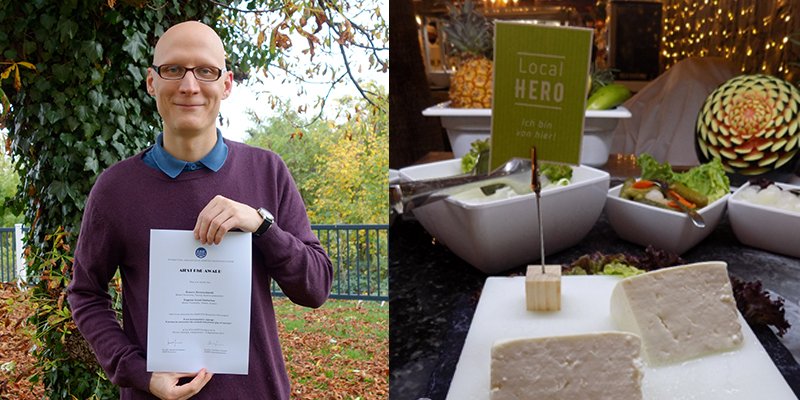Award-winning MU study shows: Communication tools help prevent food waste and increase consumption of local products
October 31, 2017
A recent study by MU’s department for Tourism and Service Management investigated how tourists react to sustainability information provided to them through communication tools at the food and beverage (F&B) area of their hotel.
The tools, which were developed in cooperation with a Viennese designer, communicated the two scenarios “waste prevention” and “local products” in two typical holiday hotels in Gran Canaria (Spain).
The field phase consisted of a one-week baseline measurement (without the instruments) and a one-week test phase in which the instruments were applied in the normal operation of the hotel. The data of the baseline and test phase were then compared to identify significant differences.
The results show that the communication tools had a significant effect on the consumption behaviour of tourists: The amount of edible plate waste decreased by an average of 14.3%, while the consumption of local products increased by an average of 128.4%.
Project leader Prof. Dagmar Lund-Durlacher and Researcher Hannes Antonschmidt were impressed by the results: “It is good to see that the tools are effective. The tourists seem to care for sustainability, even when it comes to food. This is a small, but important step towards more sustainable travel products.”
The study results were also well received by the scientific community. PhD candidate Hannes received the best paper PhD award at the annual conference of the renowned International Association of Scientific Experts in Tourism (AIEST) in Tbilisi, Georgia for his paper ''Food Sustainability Signage - A Means to Overcome the Attitude Behaviour Gap of Tourists?'' on the subject.
More information about the project can be found (in both German and English) on the website of Futouris e.V.
Congratulations Hannes!





